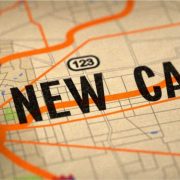CV Tips: What Recruiters Are Looking For
When pursuing a dream job, your CV will need to impress recruiters and show them that you are a strong suitable candidate. But what exactly do recruiters like us want to see in a CV and how do we need the information presented?
The first hurdle
Firstly, you must persuade recruiters to open your CV. Even the best CV in the world is useless if it sits unopened in a recruiter’s inbox. To ensure that recruiters open your CV in the first place, you must include a powerful cover note to tempt them in. Keep your cover note short and sharp to save the reader time and provide a summary of how your skills and experience match the job advert requirements. Remember to address the recruiter by name and write in a friendly tone to create a good impression and start to build a rapport with them.
Recruiters scan your CV for relevant content
Once a recruiter has opened your CV, the first thing they will do, is spend an initial 6-10 seconds scanning the CV for the essential skills and knowledge. This is initial scan is just to ensure that your CV has enough of the role’s candidate requirements, before they invest the time read your CV in full. If your CV doesn’t pass this quick scan, then it’s likely that the recruiter will close your CV down and move on to the next one. To ensure that your CV makes an instant impact when opened, make it easy to read and highlight the skills that are relevant to your target roles. Use a clear simple font, break text up, structure the pages well and make your relevant talents prominent.
Recruiters focus on your current role
Your current or most recent role is by far the biggest indicator of what you are capable of at this stage of your career; so recruiters will spend a lot of time studying this section of your CV. They want to know things like:
- Your position within the organisation
- Overall goal of your role
- People you interact with (managers, suppliers, customers etc.)
- Tools/software used (IT packages, machinery, hardware etc.)
- Work produced (reports, websites, physical products etc.)
- Targets and achievements
Write about your current role in great detail to give recruiters lots of information and show exactly what you have contributed to your employer. Older roles can be shortened down and summarised to save space on your CV.
Recruiters look for numbers
Facts and figures are excellent indicators of value for recruiters because they give an idea of the scale of impact you have created. So recruiters love to see numbers on your CV that quantify the results you have achieved for yourself, employers and clients. When writing your CV, try to add some measurable achievements such as:
- Generated 150 unit sales in 3 months
- Resolved 95% of complaints in 24 hours
- Cut department spending by 15%
Recruiters are very cautious
Recruiters work hard to maintain good relationships with hiring managers and providing bad candidates can seriously damage those relationships. For this reason, recruiters are very careful about which CVs they recommend for positions. Things like gaps in employment and sloppy formatting can be enough to worry recruiters into leaving out of the shortlist. Don’t give recruiters any chance to doubt you; ensure that your CV looks professional and has no deal-breaking mistakes.
Originally published at: http://theundercoverrecruiter.com/recruiters-read-cv/








